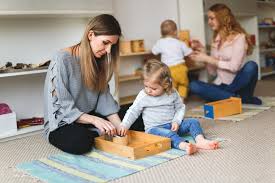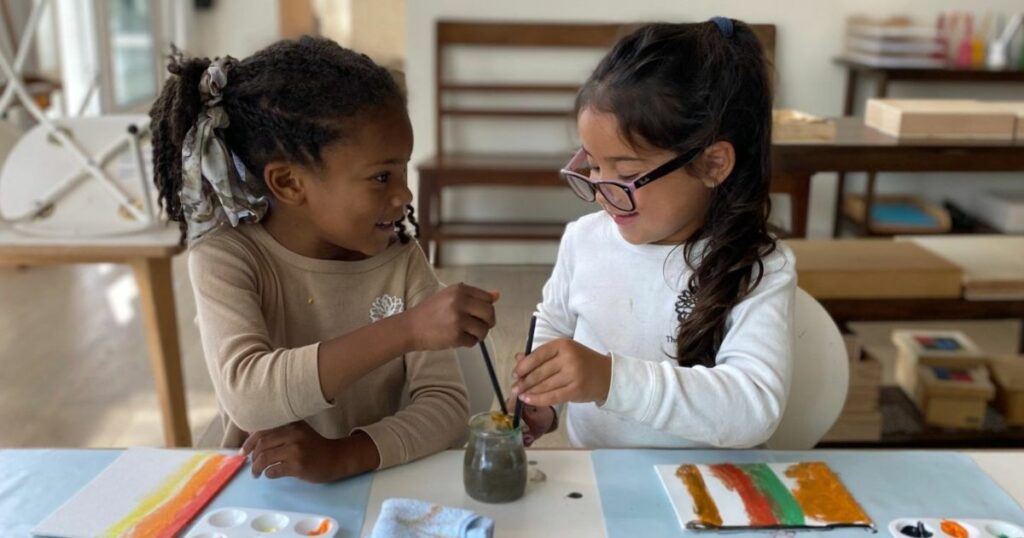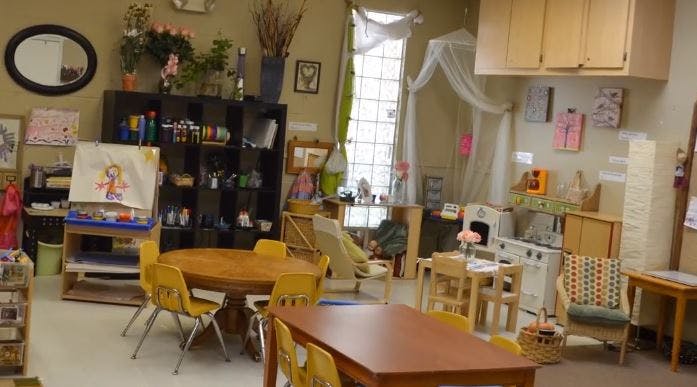We may not always be able to prevent kids tantrums, but there are a number of strategies for dealing with them effectively. Continue reading for Montessori advice on how to handle toddler tantrums.
Dealing with tantrums
Tantrums are a fairly common occurrence among children aged one to five years. They should start a bit later and end a little sooner than a year, but anything in this range is generally normal. Your child is discovering that things don’t always turn out the way they want them to. As parents, we are helping kids to learn how to cope with these feelings and make restitution.
For a parent, it might be upsetting. It is challenging to realize that your kid is truly requesting your help. They’re feeling overwhelmed by the circumstance and need your help to relax. This isn’t the time to take things too seriously.
How to avoid tantrums?
You can avoid tantrums if you intervene before your kid loses control. Here are some suggestions for preventing tantrums when you notice your toddler losing control.
#1 Always be prepared
If you anticipate your kid to wait patiently in a doctor’s office or a cafe, pack a small bag with some fun toys and favorite snacks.
#2 Acknowledge that your child will need to say “no.”
During a tantrum, many young children turn to say “no” because they can not explain the rollercoaster of emotions they are experiencing. Respond with empathy and an ‘ok’ or validation of their sentiments.
Learning to say “no” is also the first step toward your kid realizing that they are their own being. As kids develop their own individuality and learn to distinguish themselves from you, this is both wonderful and bittersweet.
#3 Label your kid’s feeling
“Wow, you sure wish you could stay a little longer”. You wanted some orange juice right now!”
#4 Always ask if your kid needs any help
If they’re having trouble, ask if they’d like some help; provide only as much help and support as they require, and then take a step back. Providing required help to your kids is a first step towards preventing kids tantrums.

#5 Give your kids choices:
Never force your kid to do something. This is something that you must always avoid. Instead, give your kids choices. For example; when you are helping them to get ready ask; Would you like to put on your shoes or scarf first?
#6 Make Routines:
“And after lunch, we’ll go to the bathroom, read a book, and snuggle in for a snooze,” Making a routine will is a good idea. A proper routine will make your kids do all the tasks on time.
#7 Allow them to express their anger creatively.
“Show how angry you are.” I’ve got some paper and a pencil for you. Wow. There are big circles. “You’re really mad!”
Triggers:
Things can easily devolve into a full-fledged tantrum. It could be because of your child’s irritation, wrath, or rage; it could also be because they want to be in charge; their communication may still be restricted; or it could be because they are sleepy, hungry, or overstimulated. They can hurl themselves on the floor, push us away, hit us or another sibling/child, or even smash something.
It’s a good idea to keep track of what triggers your child’s tantrums: overscheduling is typical, as is a new baby, moving, or certain children.
We may even start the tantrum when we tell them it’s time to leave the park, or when we serve them some dish they don’t like for dinner, or when we tell them they need to get dressed to leave the house.

It’s fine if your child throws a tantrum. You might acknowledge their dissatisfaction with the situation. And assist them in doing the thing they despise. When we give in and give in to them, they will scream even louder the following time.
It’s challenging to be a parent while remaining strong. However, your patience will pay off in the long run. They’ll learn that when you say no, you really mean it, and that when you say yes, you really mean it:).
I like the advice from “Positive Discipline: The Toddler Years”:
“If you say anything, mean it, and if you mean it, do it with kindness and action.”
For example, action could include leaving the park with an unhappy kid and acknowledging that they wished they could stay longer.
Takeaway:
Montessori tips are most effective in dealing with kids tantrums. No need to worry when it comes to preventing toddlers tantrums. Follow any of the Montessori discipline tips above to stay calm and give your child the support they need to regain control.






